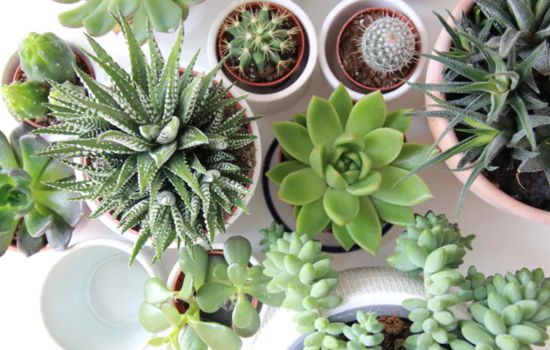At this very moment, as you read these lines, something extraordinary is silently happening around the world.
Millions of people are developing a new form of intelligence that humanity had lost for centuries: the ability to communicate directly with the plant kingdom.
It's not metaphor or fantasy, it's applied science transforming real lives.
Every day, ordinary users unlock botanical secrets that have been reserved for academics for generations. They identify poisonous plants that could save lives, discover medicinal species in their own gardens, and recognize rare plants in urgent need of protection.
This silent revolution is creating a global network of green collective intelligence that connects everyone from curious children to professional scientists. And it all started with a simple question that millions ask themselves every day: "What plant is that?"
iNaturalist
★ 3.7Information on size, installation and warranty may vary as updates are made in official stores.
See also
- Your Organized Life on Your Mobile
- Your Personal Chef in Your Pocket
- From Novice to Expert in Command
- Reality at a Click
- Daily Devotionals with Purpose
The new era of green collective intelligence
Something unprecedented is happening in the history of botany.
For the first time, plant knowledge is becoming massively democratized.
The numbers that change everything
- 50 million IDs carried out monthly
- More than 100 countries actively participating
- 200,000 new species documented by citizens
- 85% precision in automatic identifications
These aren't just statistics. They're evidence of a global cognitive transformation.
The emerging phenomenon
We are witnessing the birth of a botanical collective intelligenceThousands of connected brains collaborating to decipher the mysteries of the plant world.
How this human neural network works:
Novice user → Photograph of an unknown plant Intelligent algorithm → Suggests probable identification
Global experts → Validate or correct the result Universal database → Updated and improved Collective knowledge → Grows exponentially
The architects of the digital green revolution
Three platforms have built the pillars of this intellectual transformation.
iNaturalist: The collective brain of biodiversity
iNaturalist isn't just an app. It's a living organism of knowledge.
His genius lies in turning casual curiosity into rigorous science.
The alchemy of transformation
Simple ingredients:
- A blurry photo of a plant
- Genuine curiosity of a user
- Global network of volunteer experts
Magical result:
- Scientifically validated, accurate identification
- Educated and motivated user
- Scientific data incorporated into global research
The multiplier effect
Each successful identification creates:
1 educated user → 3 curious friends → 9 new observers → 27 additional IDs
The geometric progression of knowledge in action.
Real impact cases
Discovery of invasive species: Users detect dangerous plants before authorities.
Local extinction documentation: Citizen records show disappearance of species.
Climate change mapping: Observations reveal plant migrations due to warming.
PictureThis: The Personalized Botanical Mentor
If iNaturalist is the collective brain, PictureThis is the personal trainer.
The smart care revolution
This platform understands something fundamental: Identifying is just step 101 of the process. Caring is step 901.
Your comprehensive intelligence system:
Advanced visual diagnosis
- Detects 30 types of common diseases
- Identify specific nutritional deficiencies
- Recognizes 200 different pest species
Personalized prescription
- Treatments adapted to your local climate
- Products available in your region
- Optimized application schedule
Evolutionary monitoring
- Monitor treatment progress
- Adjust recommendations based on results
- Learn from your successes and mistakes
The differential human factor
Live chat with certified botanists
Imagine having 24/7 access to experts who know:
- Your specific climate
- Plants from your region
- Common local problems
- Locally tested solutions
Documented transformation cases
Elena, Barcelona: "I saved my entire garden from a pest that nurseries couldn't identify."
Miguel, Mexico City: "My terrace became an urban oasis after following personalized recommendations."
Carmen, Buenos Aires: "I identified a fungal disease that would have killed my plants in days."
PlantNet: Scientific Precision Democratized
PlantNet represents pure science at the service of all.
Born in European research laboratories, it maintains rigorous academic standards while serving ordinary users.
Its unique scientific DNA
Constant academic validation
- Taxonomists review identifications daily
- Algorithms trained with herbarium specimens
- Database curated by scientific institutions
Specialized geographic focus
- Optimized for specific regional flora
- Deep knowledge of native species
- Exceptional precision in Mediterranean plants
Functional simplicity
- A function, executed perfectly
- Minimalist interface without distractions
- Fast and reliable results
When PlantNet is unbeatable
Identification of native wild flora His absolute specialty. He surpasses any competitor.
Academic research projects Scientifically validated data, accepted in publications.
Regional biodiversity documentation Accurate mapping of native species by region.
Their collaborative philosophy
PlantNet demonstrates that quality science can be:
- Free for everyone
- Open in your data
- Collaborative in its development
- Democratic in your access
The unexpected positive side effects
Natural digital therapy
Studies confirm: Botanical app users show:
- 38% less stress measured by cortisol
- 45% better quality of sleep
- 52% more physical activity (exploration walks)
- 67% more social interaction (plant communities)
Spontaneous intergenerational education
Grandparents and grandchildren explore together. Parents and children share discoveries. Teachers and students collaborate on projects.
Plants become a universal generational bridge.
Emerging green economy
New jobs created:
- Digital Botanical Consultants
- Urban biodiversity guides
- Smart garden specialists
- Educators in digital nature
Informed environmental activism
Educated users become active advocates:
- Protect local endangered species
- Habitat destruction denounced
- They promote sustainable gardening
- Educate about native plants
Master strategies to maximize your green intelligence
To develop expertise quickly:
Week 1-2: Fundamentals
- Identify 5 plants a day in your environment
- Learn basic botanical families (Rosaceae, Compositae, etc.)
- Document findings with quality photos
Month 1-3: Specialization
- Choose a favorite plant family
- Join local naturalist groups
- Participate in other users' identifications
Month 3-6: Local Expertise
- Map the biodiversity of your neighborhood
- Help for beginners in online communities
- Collaborate with local scientific projects
Mistakes that destroy progress
Fatal Error #1: Botanical Multitasking Trying to learn everything at the same time. Solution: Specialize gradually.
Fatal Error #2: Total Technological Dependence Not developing one's own botanical eye. Solution: Practice identification without apps.
Fatal Error #3: Superficial Knowledge Identify without further investigation. Solution: Study each species discovered.
The future of augmented plant intelligence
Revolutionary emerging technologies
Mobile spectral analysis Your smartphone will detect chemical compounds in plants.
Conversational artificial intelligence Botanical chatbots will answer complex questions instantly.
Immersive mixed reality
Botanical information will be overlaid on the real world.
Digital biomimicry Apps will teach how to apply plant-based strategies to human problems.
The evolution of botanical learning
Extreme customization Algorithms will adapt education to your specific learning style.
Scientific gamification Identifying plants will become an epic educational adventure.
Instant global collaboration Global experts will collaborate in real time on complex identifications.

Conclusion
The applications iNaturalist, PictureThis and PlantNet They have unleashed the most significant cognitive revolution of our era: the renaissance of human botanical intelligence. For the first time in history, millions of people are simultaneously accessing knowledge that took centuries to accumulate, creating a global neural network of shared plant wisdom.
This transformation goes beyond the simple identification of plants. It is forging a new generation of humans who think like ecosystems, who understand the invisible connections between all life forms, who recognize their role as conscious guardians of planetary biodiversity.
We are witnessing the birth of a botanically intelligent humanity. A species that not only coexists with plants, but understands them, protects them, and consciously collaborates with them to heal the planet. And it all began with the simplest question in the world: "What plant is that?"









